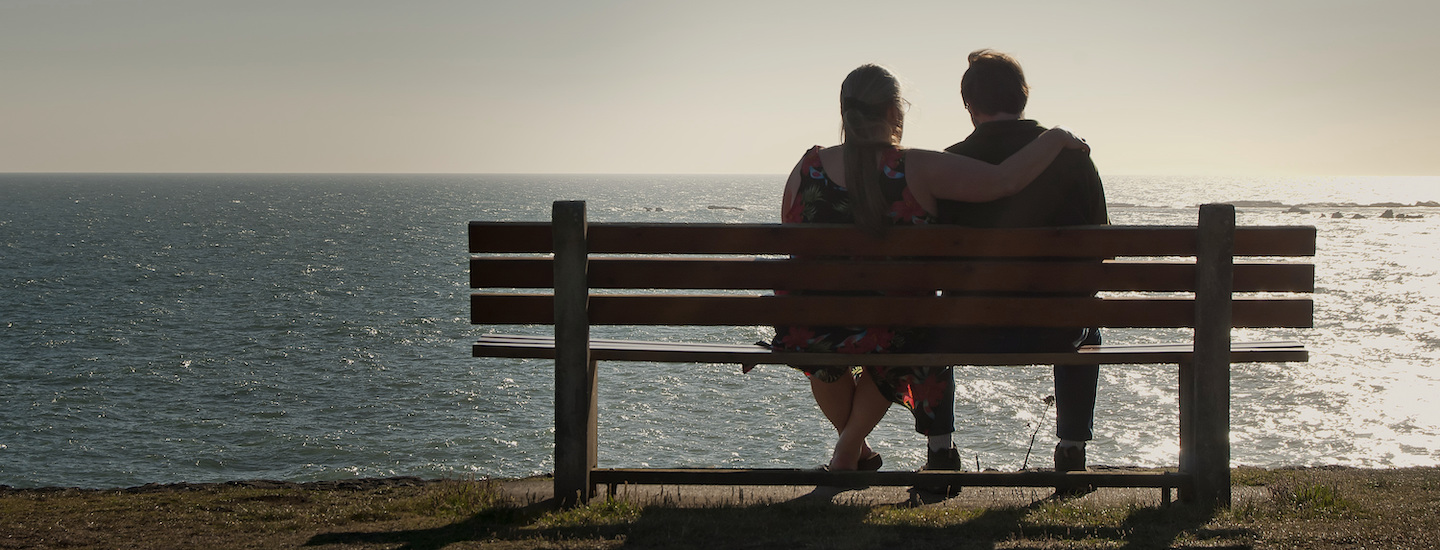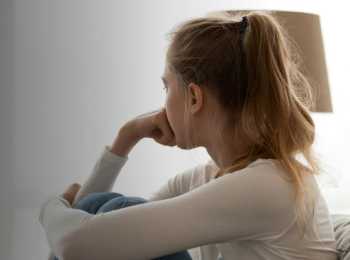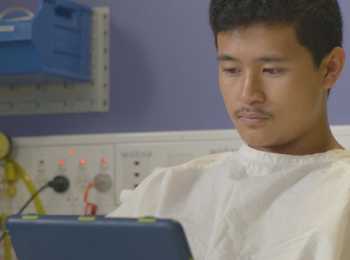Finding out
If you are reading this section, you may have just heard the word 'cancer' in an appointment and suddenly your world has been turned upside down. How the doctors arrived at that diagnosis may be a bit of a blur, but it probably involved lots of tests and scans and waiting for results.
Everyone reacts to a diagnosis in their own unique way, but it’s never easy. You may still feel overwhelmed, unable to focus on much at all. Maybe you've been told there’s a clear plan for treatment and you're preparing yourself to take the first steps. Or maybe there's still a lot to figure out, a lot of unknowns.
The truth is that, right now, whatever you’re feeling is fine. You may be numb, confused, angry or scared. You might feel blindsided or be asking “why me?”. So much has changed, so fast. It's going to take time. Be kind to yourself – your heart and brain are adjusting to a lot of news.
Things may start to move quickly. There will be lots of new words and terms, new people to meet, perhaps big decisions to make. But for now, go gently wherever you can – lean into the people you care about, write down questions when you think of them and ask for support.
Before being officially diagnosed, there was some small part of me still in denial that all those tests and scans I was having done would show something bad. Even hearing the words ‘you have cancer’ is a surreal experience for someone so young. I'm grateful that after hearing those words I suddenly had a team of medical professionals who helped me in every possible way, and helped my family and I get through such a difficult time. Marnie, 25
Take a breath
Been holding your breath since you found out you had cancer? As hard as it might be to focus on anything, here are a few things that might help you get a better handle on the situation.
Most young people survive cancer
Discoveries of new and more effective ways of diagnosing and treating cancer are being made all the time, leading to improved survival rates.
Even though you may be overwhelmed, worried or feeling sick, remembering this may give you some hope during tough times.
You are not alone
Although no one will feel exactly the same way as you, lots of other young people live with cancer. It can help to know that others are experiencing similar things.
Sometimes it might feel like your family or friends don’t really get what you’re going through, but you’re not alone. Through Canteen, you can meet and support other young people who understand how you feel because they are dealing with similar stuff. You can connect online 24/7 or attend Canteen events. Find out more at canteenconnect.org.au.
It is not your fault
Cancer is caused by lots of things, many of which doctors and researchers don’t yet fully understand. But none of these has anything to do with anything you did, said or thought.
(Correct) knowledge is power
Things imagined can often be worse than the reality. Having the correct information can be a big help. Learning about your particular cancer and its treatments from a trustworthy source can take some of the fear out of it.
If you are wondering about anything at all, don’t be afraid to ask. Your healthcare team, including specialists, won’t mind you asking as many questions as you like. Check out our list of questions to ask for questions that matter to you.
Hang on to hope
Hang on to what makes you hopeful. Remember, this is your journey to manage. Be honest about how tough it might feel sometimes. Surround yourself with people who make you feel good and treat yourself with kindness and compassion. No one can take hope from you; never give it up.
Let your feelings out
Living with cancer is one of the hardest things you will ever have to do. Every person will react to the news and cope in their own way. Your thoughts and emotions can feel overwhelming, but they will come and go.
It is okay to feel scared, sad, frustrated and worried. But keeping it all inside or pretending that you are fine doesn’t usually help. Try to notice the things that matter to you and that make you feel good; and be around people who you trust and feel comfortable with.
Things usually get easier with time
Cancer can make your life really difficult – from side effects and changes to your body, to interrupting school and messing with your relationships and emotions. But over time, you will adjust to some of these changes and get used to some new routines. Try to be patient and give yourself all the time you need.
Everyone’s situation is different
It can be helpful to learn about what sorts of things might happen. But there is no substitute for talking to your medical team about what to expect in your case. Everyone’s cancer, treatment, prognosis and side effects will be different. Comparing yourself to others may cause you to feel worse. The way people react and deal with their feelings is unique too, so let yourself do it in your own way.
You can get answers and support
Even if it feels that your family and friends don’t really get what you’re going through, there are people out there who can help. Social workers and counsellors are really good at listening, linking you with support and helping you build skills to cope. You can talk to them in person, online and on the phone.
Canteen provides a free and confidential counselling service. You can also ask your doctor to recommend a counsellor or contact your nearest Youth Cancer Service.
I couldn’t sleep the night I was diagnosed with cancer. I was so worried and concerned about the unknown. All I knew is that I would get through it, I had to. Fiona, 22


















